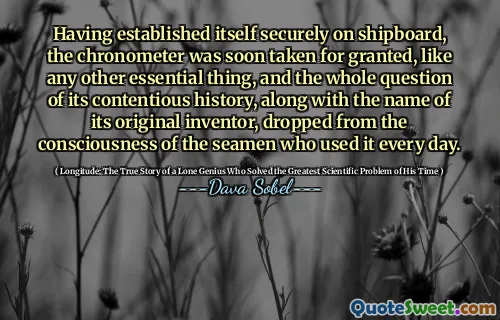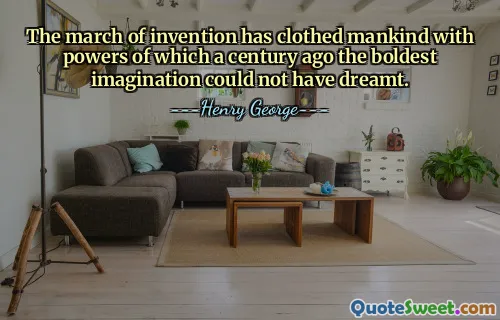
Having established itself securely on shipboard, the chronometer was soon taken for granted, like any other essential thing, and the whole question of its contentious history, along with the name of its original inventor, dropped from the consciousness of the seamen who used it every day.
This quote eloquently captures a universal truth about human interaction with technology and innovation. Once a groundbreaking invention becomes a fundamental part of daily life, the marvel of its creation often fades into the background, becoming so integrated and reliable that users no longer actively acknowledge its origins or the struggles involved in its development. The chronometer, which revolutionized navigation by solving the problem of determining longitude at sea, epitomizes this phenomenon. Seamen depended on this instrument, yet their reliance transformed into an unconscious acceptance, obscuring the efforts and ingenuity of its inventor.
Such a reflection speaks volumes about the nature of progress and collective memory. Great achievements can become invisible through routine use, leading to a diminished appreciation of the historical and intellectual journeys that made them possible. This is not only a commentary on technological tools but also on human perception and cultural memory more broadly. It raises important questions about how societies honor innovation and preserve the narratives behind essential advancements. In a way, this fading recognition can diminish respect for the complexity and importance of creative problem-solving.
Moreover, this quote implicitly invites us to reconsider how we value and acknowledge contributions to knowledge and technology, urging a conscious remembrance of the past to fully appreciate the present. For readers of "Longitude" by Dava Sobel, this quotation encapsulates the tension between ingenuity and anonymity, reminding us that even the most transformative inventions have rich, often disputed stories—and that remembering these stories enriches our understanding of human endeavor.




